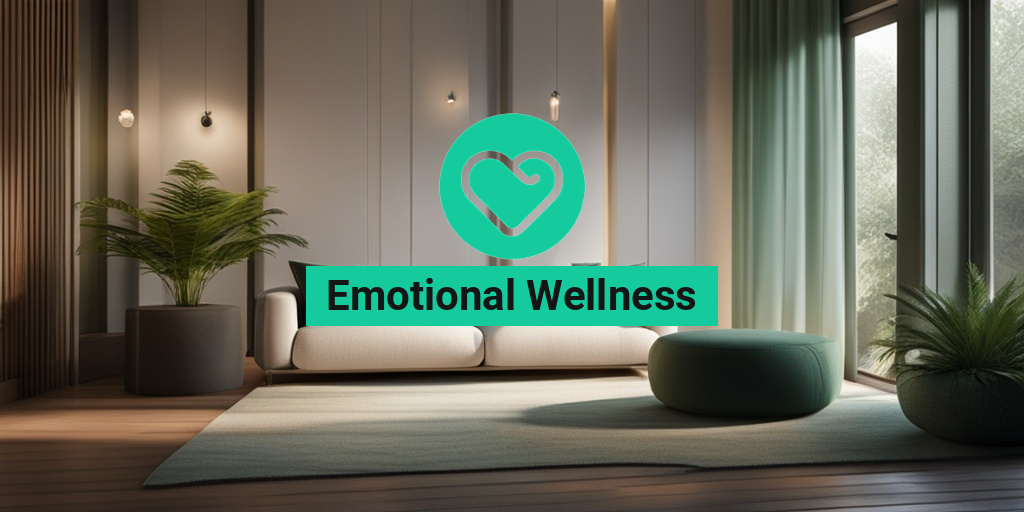What Is Emotional Wellness?
Emotional wellness is a vital aspect of our overall health and wellbeing. It encompasses our ability to navigate life’s challenges, build strong relationships, and maintain a positive outlook, even in the face of adversity. But what exactly is emotional wellness, and why is it so crucial for our overall health?
Defining Emotional Wellness
Emotional wellness refers to our ability to recognize, understand, and manage our emotions in a way that promotes resilience, self-awareness, and positive relationships. It involves being able to cope with stress, adapt to change, and maintain a sense of purpose and direction in life.
Emotional wellness is not just the absence of mental health issues, such as anxiety or depression. Rather, it’s a proactive approach to cultivating emotional intelligence, self-awareness, and a growth mindset. When we prioritize emotional wellness, we’re better equipped to handle life’s ups and downs, build stronger relationships, and achieve our goals.
The Dimensions of Wellness
Emotional wellness is one of the six dimensions of wellness, which also include:
- Physical wellness: taking care of our physical health through exercise, nutrition, and self-care
- Social wellness: building and maintaining positive relationships with others
- Mental wellness: managing our thoughts, feelings, and behaviors in a way that promotes mental health
- Spiritual wellness: connecting with our values, beliefs, and sense of purpose
- Intellectual wellness: engaging in lifelong learning, creativity, and personal growth
- Environmental wellness: living in harmony with our surroundings and promoting sustainability
When we prioritize emotional wellness, we’re more likely to experience overall wellness in all these dimensions.
Importance of Emotional Wellness
So, why is emotional wellness so important? The answer is simple: it’s the foundation upon which we build our lives. When we prioritize emotional wellness, we:
- Improve our mental health: by reducing stress, anxiety, and depression
- Enhance our relationships: by building stronger, more meaningful connections with others
- Increase our resilience: by developing coping skills and learning to adapt to change
- Boost our productivity: by improving our focus, motivation, and overall well-being
- Live a more fulfilling life: by aligning with our values, passions, and sense of purpose
By prioritizing emotional wellness, we’re investing in our overall health, happiness, and success. And that’s a pretty great return on investment, if you ask me! 😊
Want to learn more about emotional wellness and how to prioritize it in your life? Check out Yesil Health AI (yesilhealth.com) for evidence-based health answers and resources. 🌟

Signs of Poor Emotional Wellness
Emotional wellness is a vital aspect of our overall health, and it’s essential to recognize the signs of poor emotional wellness to take corrective action. When we neglect our emotional health, it can lead to a range of negative consequences that affect our relationships, work, and overall quality of life.
Feeling Overwhelmed and Stressed
Do you often feel like you’re drowning in a sea of emotions, with anxiety and stress weighing you down? This can be a sign of poor emotional wellness. When we’re unable to manage our emotions, we can become overwhelmed, leading to feelings of hopelessness and despair.
Mood Swings and Irritability
Are you prone to mood swings, becoming easily irritated or angry at the slightest provocation? This can be a sign that your emotional wellness is suffering. When we’re not in control of our emotions, we can lash out at others, causing harm to our relationships and reputation.
Lack of Motivation and Purpose
Do you feel unenthusiastic and disconnected from your goals and passions? This can be a sign of poor emotional wellness. When we’re not emotionally well, we can struggle to find meaning and purpose in life, leading to feelings of emptiness and disconnection.
Difficulty Sleeping and Relaxing
Are you struggling to fall asleep or relax due to racing thoughts and emotions? This can be a sign that your emotional wellness is suffering. When we’re not able to calm our minds and emotions, we can struggle to get the restful sleep we need, leading to fatigue and decreased productivity.
Physical Symptoms
Did you know that poor emotional wellness can manifest physically? Symptoms like headaches, digestive issues, and muscle tension can all be signs that your emotional health is suffering. When we’re not emotionally well, our bodies can pay the price.
Benefits of Good Emotional Wellness
On the other hand, good emotional wellness can bring a range of benefits that can transform our lives. By prioritizing our emotional health, we can experience:
Improved Relationships
When we’re emotionally well, we’re better equipped to build strong, healthy relationships with others. We’re more empathetic, understanding, and able to communicate effectively, leading to deeper connections and stronger bonds.
Increased Resilience
Good emotional wellness helps us develop resilience, enabling us to bounce back from life’s challenges and setbacks. We’re better able to cope with stress and adversity, and we’re more likely to emerge stronger and wiser.
Enhanced Problem-Solving Skills
When we’re emotionally well, we’re able to think more clearly and make better decisions. We’re more able to approach problems with a clear head, think creatively, and find innovative solutions.
Better Physical Health
Good emotional wellness is linked to better physical health. When we’re emotionally well, we’re more likely to engage in healthy behaviors, like regular exercise and healthy eating, and we’re less likely to experience chronic stress and anxiety.
Increased Productivity and Creativity
Emotional wellness can boost our productivity and creativity, enabling us to achieve our goals and pursue our passions with renewed energy and enthusiasm. We’re more focused, motivated, and inspired to make a positive impact in the world.
By recognizing the signs of poor emotional wellness and prioritizing our emotional health, we can experience the many benefits of good emotional wellness. Remember, taking care of our emotional health is essential to living a happy, healthy, and fulfilling life 🌟.

Emotional Wellness and Mental Health
When we talk about emotional wellness, we often associate it with mental health. And rightly so! Emotional wellness is a crucial aspect of our overall well-being, and it has a significant impact on our mental health. But what exactly is emotional wellness, and how does it relate to mental health?
Defining Emotional Wellness
Emotional wellness refers to our ability to recognize, understand, and manage our emotions in a way that promotes a healthy and fulfilling life. It’s about being aware of our emotional needs, taking care of ourselves, and developing resilience in the face of challenges. Emotional wellness is not just the absence of mental health issues, but a positive state of being that allows us to thrive and live life to the fullest.
The Connection Between Emotional Wellness and Mental Health
Emotional wellness and mental health are closely linked. When we have good emotional wellness, we’re better equipped to handle stress, anxiety, and other mental health challenges. On the other hand, poor emotional wellness can increase our risk of developing mental health issues like depression, anxiety disorders, and substance abuse. By prioritizing emotional wellness, we can reduce our risk of developing mental health problems and improve our overall well-being.
💡 Did you know that emotional wellness is one of the six dimensions of wellness, along with physical, social, spiritual, intellectual, and environmental wellness? By focusing on emotional wellness, we can improve our overall health and well-being.
How to Improve Emotional Wellness
Improving emotional wellness takes effort and commitment, but it’s worth it. Here are some strategies to help you get started:
Practice Self-Awareness
Self-awareness is the foundation of emotional wellness. Take time to reflect on your thoughts, feelings, and behaviors. Identify your strengths and weaknesses, and acknowledge your emotional needs. This will help you develop a better understanding of yourself and make positive changes.
Develop Emotional Regulation Skills
Emotional regulation skills help us manage our emotions in a healthy way. This includes techniques like deep breathing, mindfulness, and journaling. By developing these skills, you can reduce stress, anxiety, and other negative emotions.
Build Strong Relationships
Strong relationships with family, friends, and loved ones are essential for emotional wellness. Surround yourself with people who support and care for you, and make an effort to nurture those relationships.
Take Care of Your Physical Health
Physical health and emotional wellness are closely linked. Regular exercise, healthy eating, and sufficient sleep can improve your mood, reduce stress, and boost your overall well-being.
🏋️♀️ Regular physical activity can reduce symptoms of anxiety and depression, and improve overall mental health.
Seek Professional Help When Needed
Finally, don’t be afraid to seek professional help when you need it. If you’re struggling with emotional wellness or mental health issues, consider talking to a therapist, counselor, or mental health professional. They can provide you with the support and guidance you need to improve your emotional wellness.
Remember, emotional wellness is a journey, not a destination. By prioritizing your emotional well-being and taking small steps towards improvement, you can live a happier, healthier, and more fulfilling life. 💖

Emotional Wellness Strategies for Stress Relief
Are you tired of feeling overwhelmed and stressed out? Do you wish you could find a way to calm your mind and soothe your emotions? You’re not alone! Emotional wellness is an essential aspect of our overall health, and it’s crucial to prioritize it in today’s fast-paced world. In this article, we’ll explore some effective emotional wellness strategies for stress relief.
Practice Mindfulness Meditation
Mindfulness meditation is a powerful tool for reducing stress and anxiety. By focusing on the present moment, you can calm your mind and reduce feelings of overwhelm. Try setting aside 10-15 minutes each day to sit comfortably, close your eyes, and focus on your breath. When your mind wanders, gently bring it back to the present moment. You can also try guided meditation apps like Headspace or Calm to get started.
Engage in Physical Activity
Regular exercise is a great way to reduce stress and anxiety. Physical activity releases endorphins, which are natural mood-boosters that can help improve your emotional well-being. Find an activity you enjoy, whether it’s walking, jogging, yoga, or dancing, and make it a regular part of your routine. Aim for at least 30 minutes of moderate-intensity exercise per day.
Connect with Nature
Spending time in nature can have a calming effect on our emotions. Take a walk in a park, go for a hike, or simply sit outside and soak up some sunshine. Being in nature can help reduce feelings of stress and anxiety, and improve your overall mood. Try to spend at least 30 minutes outside each day to reap the benefits.
Practice Gratitude
Focusing on what you’re grateful for can help shift your perspective and reduce stress. Take a few minutes each day to write down three things you’re thankful for. It could be something as simple as a good cup of coffee or a beautiful sunset. Practicing gratitude can help you focus on the positive aspects of your life and reduce feelings of anxiety.
Building Resilience for Emotional Wellness
Resilience is the ability to bounce back from adversity, and it’s an essential component of emotional wellness. When we’re resilient, we’re better equipped to handle life’s challenges and setbacks. So, how can you build resilience for emotional wellness?
Develop a Growth Mindset
A growth mindset is the belief that our abilities and intelligence can be developed through hard work and dedication. When we have a growth mindset, we’re more likely to view challenges as opportunities for growth and learning. This can help us build resilience and improve our emotional well-being. Try to focus on the lessons you can learn from difficult situations, rather than getting bogged down in negative emotions.
Cultivate Positive Relationships
Surrounding yourself with positive, supportive people can help you build resilience and improve your emotional well-being. Nurture your relationships with friends and family, and try to avoid negative or toxic relationships that can drain your energy.
Practice Self-Care
Self-care is essential for building resilience and improving emotional wellness. Make time for activities that bring you joy and relaxation, such as reading, taking a bath, or listening to music. Prioritize your own needs and take care of yourself, both physically and emotionally.
Learn to Reframe Negative Thoughts
Negative thoughts can be a major obstacle to emotional wellness. When we’re stuck in negative thought patterns, it can be hard to build resilience and bounce back from adversity. Try to reframe negative thoughts by focusing on the positive aspects of a situation. For example, instead of thinking “I’ll never be able to do this,” try reframing it as “I’ll learn and grow from this experience.”
By incorporating these strategies into your daily life, you can build resilience and improve your emotional wellness. Remember, emotional wellness is a journey, and it takes time and effort to develop. But with patience, persistence, and practice, you can achieve a more balanced and fulfilling life. 🌟

Frequently Asked Questions about Emotional Wellness
What is Emotional Wellness?
Emotional wellness refers to the ability to recognize and understand emotions, and to use this awareness to improve one’s mental and physical health. It involves being able to manage stress, build strong relationships, and maintain a positive outlook on life.
Why is Emotional Wellness Important?
Emotional wellness is essential for overall health and well-being. It can help individuals to:
- Manage stress and anxiety
- Build strong relationships
- Maintain a positive outlook on life
- Improve mental and physical health
- Enhance resilience and coping skills
How Can I Achieve Emotional Wellness?
Achieving emotional wellness requires a combination of self-awareness, self-care, and intentional habits. Here are some tips:
- Practice mindfulness and meditation
- Engage in regular exercise and physical activity
- Get enough sleep and maintain a healthy diet
- Connect with others and build strong relationships
- Practice gratitude and positive thinking
What are the Dimensions of Wellness?
There are six dimensions of wellness, which are:
- Physical wellness
- Emotional wellness
- Social wellness
- Mental wellness
- Spiritual wellness
- Intellectual wellness
How Does Emotional Wellness Relate to Other Dimensions of Wellness?
Emotional wellness is closely linked to other dimensions of wellness. For example:
- Physical wellness can impact emotional wellness through exercise and physical activity
- Social wellness can impact emotional wellness through social connections and relationships
- Mental wellness can impact emotional wellness through mental health and stress management
What are Some Emotional Wellness Examples?
Here are some examples of emotional wellness in action:
- Practicing self-compassion and self-care
- Setting healthy boundaries with others
- Expressing emotions in a healthy and constructive way
- Building strong and supportive relationships
How Can I Improve My Emotional Wellness?
Improving emotional wellness requires intentional effort and practice. Here are some tips:
- Seek professional help if needed
- Practice self-reflection and self-awareness
- Develop healthy coping mechanisms
- Build a strong support network
What is the Relationship Between Emotional Wellness and Health?
Emotional wellness has a significant impact on overall health. Chronic stress and anxiety can lead to:
- Cardiovascular disease
- Diabetes
- Obesity
- Mental health disorders
How Can I Prioritize Emotional Wellness in My Daily Life?
Prioritizing emotional wellness requires making intentional choices and habits. Here are some tips:
- Make time for self-care and relaxation
- Prioritize relationships and social connections
- Practice mindfulness and meditation
- Engage in activities that bring joy and fulfillment




